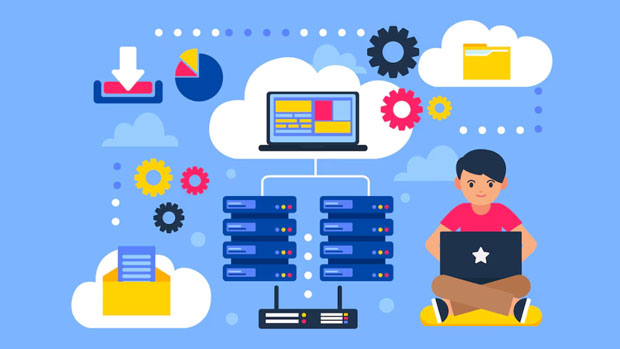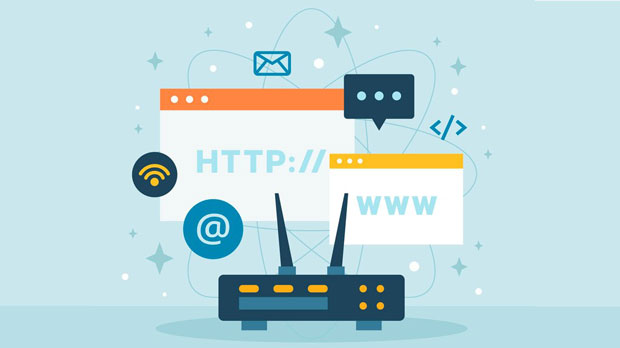In the world of proxy services, one of the key factors for selecting the best provider is whether they support multi-protocol parallelism. Multi-protocol parallelism refers to the ability of a proxy service to handle multiple protocols simultaneously, which can significantly enhance the flexibility and efficiency of online activities. Two popular proxy providers—4everproxy and PYPROXY—offer varying levels of support for this feature. This article will examine whether residential proxies support multi-protocol parallelism, compare the strengths and weaknesses of 4everproxy and pyproxy, and help users decide which service is the best fit for their needs. Understanding Residential Proxies and Multi-Protocol ParallelismBefore diving into the comparison between 4everproxy and pyproxy, it's important to understand what residential proxies are and what multi-protocol parallelism entails. Residential proxies are IP addresses assigned to real devices and home networks. They are highly reliable and undetectable, making them ideal for tasks like web scraping, ad verification, and bypassing geo-restrictions.Multi-protocol parallelism refers to a proxy service's ability to manage multiple communication protocols at the same time. This feature allows users to perform different tasks simultaneously on various platforms and protocols (such as HTTP, HTTPS, SOCKS5), making proxy usage more efficient and versatile. For businesses, supporting multi-protocol parallelism means greater scalability and enhanced performance in data collection and automation.Do Residential Proxies Support Multi-Protocol Parallelism?Many residential proxy services, including 4everproxy and pyproxy, claim to support multiple protocols, but the extent and quality of this support can vary. In general, residential proxies do support protocols like HTTP, HTTPS, and SOCKS5. These protocols cater to different types of traffic and have their own unique characteristics.- HTTP/HTTPS: These are the most common protocols for web browsing. HTTPS is simply a secure version of HTTP and is essential for encrypted connections, ensuring privacy and data integrity.- SOCKS5: This protocol is more versatile and handles all kinds of internet traffic, including FTP, P2P, and gaming. It's often preferred for applications requiring high security and anonymity.For a residential proxy to truly offer multi-protocol parallelism, it must be capable of switching between these protocols seamlessly while handling multiple requests at the same time. Not all proxy providers achieve this, and the speed and reliability of protocol switching can vary widely depending on the underlying infrastructure.4everproxy: Features, Strengths, and Limitations4everproxy is a relatively new player in the proxy market, but it has quickly gained attention due to its robust features and strong support for residential proxies. Here's a breakdown of its offerings:- Support for Multiple Protocols: 4everproxy offers support for HTTP, HTTPS, and SOCKS5 protocols. This makes it a good choice for users who require versatile proxy solutions for web scraping, data gathering, or bypassing geographical restrictions.- Parallel Protocol Switching: 4everproxy allows users to switch between different protocols seamlessly. This is particularly useful for businesses needing to perform tasks that require different communication protocols simultaneously, such as managing multiple types of traffic for automation purposes.- Reliability: 4everproxy provides access to a vast pool of residential IP addresses. However, its speed and reliability can sometimes be inconsistent due to varying network congestion and external factors affecting residential IP addresses.- Security and Anonymity: 4everproxy emphasizes security with encrypted connections and anonymous browsing. Users can be confident that their activities are private, although the strength of encryption and anonymity can depend on the selected protocol.However, there are some limitations with 4everproxy:- Pricing: 4everproxy tends to be on the more expensive side, especially when users require large amounts of traffic or high-speed performance.- Customer Support: While 4everproxy provides customer support, the response times can be slower compared to more established proxy providers, which can be frustrating for businesses relying on fast problem resolution.pyproxy: Features, Strengths, and Limitationspyproxy is another well-known proxy provider, offering residential proxy solutions to clients across the globe. Here’s a closer look at what pyproxy offers:- Protocol Support: Like 4everproxy, pyproxy supports HTTP, HTTPS, and SOCKS5 protocols. This ensures that users have access to a wide range of internet activities without being limited by protocol compatibility.- Performance and Speed: pyproxy is known for its fast and stable connections, which is crucial for users who require proxies for real-time data collection or streaming services. The proxy speed is generally more consistent compared to 4everproxy, making it a popular choice among businesses needing reliable proxy services.- Multi-Protocol Parallelism: pyproxy also supports multi-protocol parallelism, allowing users to manage multiple protocols and tasks simultaneously. This is a critical feature for users who need to optimize their workflows and increase operational efficiency.- Customer Support: pyproxy offers excellent customer support, with fast response times and knowledgeable staff ready to assist with any issues. This makes it an appealing option for businesses that prioritize customer service and assistance.Despite these strengths, pyproxy also has its drawbacks:- Limited Customization: Compared to 4everproxy, pyproxy provides fewer customization options, which may be a downside for users with specific proxy needs.- Pricing: pyproxy’s pricing can also be considered high, especially for users who need to access large proxy pools or multiple locations simultaneously.Comparison: 4everproxy vs pyproxyWhen comparing 4everproxy and pyproxy, several factors come into play. Both providers offer multi-protocol parallelism, but their performance, pricing, and features differ.- Protocol Support: Both services support the essential protocols (HTTP, HTTPS, SOCKS5), but 4everproxy offers more seamless protocol switching, while pyproxy tends to provide a more stable and consistent service.- Speed and Reliability: pyproxy is known for its reliability and speed, making it a better choice for users who need constant access to high-speed proxy services. 4everproxy can be inconsistent in terms of speed, particularly with residential IPs, but its flexibility makes it ideal for users with varying needs.- Customer Support: pyproxy excels in customer support, offering quicker responses and better assistance. 4everproxy's support can be slower, which may affect users who need urgent help.- Pricing: Both providers have high pricing, but 4everproxy tends to be more expensive for large-scale usage, while pyproxy offers more value for businesses needing stability and reliability.Which One is Better for You?Ultimately, the choice between 4everproxy and pyproxy depends on your specific needs. If you prioritize speed, stability, and excellent customer service, pyproxy is likely the better choice. It offers consistent performance and robust multi-protocol support, making it ideal for businesses with high demands.On the other hand, if you need more flexibility with protocol switching and can handle occasional performance inconsistencies, 4everproxy might be more suitable for your use case. Its versatile protocol support and customization options are beneficial for users who require more control over their proxy configuration.In conclusion, both 4everproxy and pyproxy support multi-protocol parallelism, but each has its own strengths and weaknesses. Weighing your needs against their features, support, and pricing will help you make an informed decision on which proxy service is best for your business or personal use.
Nov 07, 2025



































































